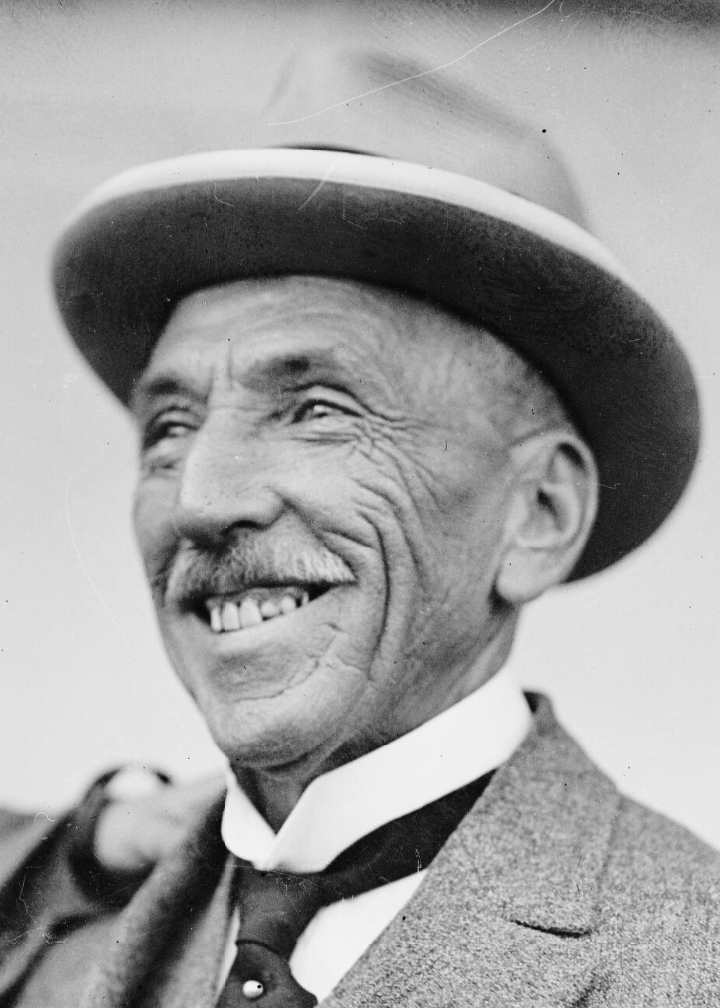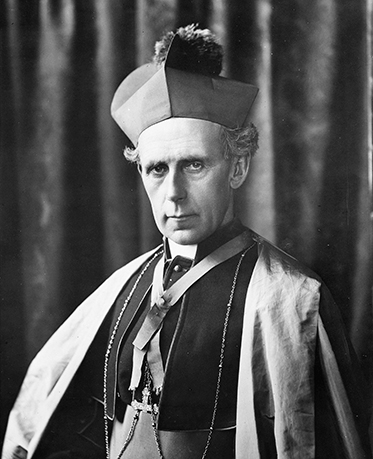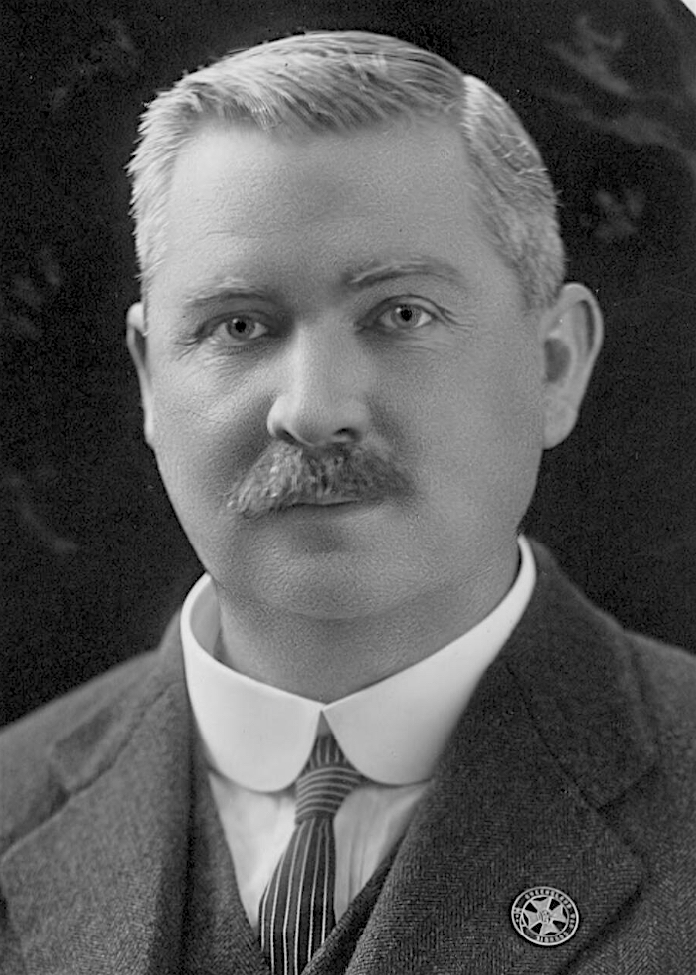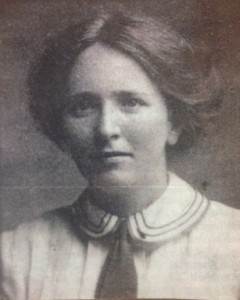AustLit
-
William Morris Hughes was born in London on the 25th of September 1862 to Welsh parents. It was there in London that he lived until the death of his mother. After her death, he was sent to live with his Aunt in Wales. His schooling began in Wales to which he remained until the age of 12. At this point Hughes was sent back to London to live with his father. It wasn't until 1884 that it was decided that the Hughes family would immigrate to Australia. Upon their arrival, Hughes residence was in Brisbane, until moving to Sydney (Hughes 2005).
When Hughes became Prime Minister, he offered the British Government a further 50,000 men to use at their disposal. With volunteer numbers dwindling, conscription as an issue was beginning to be raised. Hughes felt strongly linked to Great Britain, and was a firm supporter of the War, so his stance on conscription was unsurprisingly pro conscription (Jauncey 1935).
-
Daniel Mannix was born on the 4th of March 1864 in Charleville, County Cork, Ireland. Educated by the Sisters of Mercy and Christian Brothers, he moved on later to St Patrick's College, Maynooth in 1882. He would remain in Maynooth until 1912, at which time he was appointed to Melbourne as Coadjutor Archbishop (Vodola, 2018).
On 16th of September 1916, Archbishop Mannix was in attendance to the opening of a parish bazaar, located at St Johns Parish, Clifton hill. After his unscheduled stop at Albert Hall on Queens Parade, he took the time to talk about the issue of conscription, which had been raised by the Hughes Government. Mannix spoke about achieving peace without the need for conscription. He had described it as a "hateful thing" and further commented; "the present war would not have achieved such disastrous proportions if conscription had not prevailed in Europe" (Vodola, 2018).
By doing this Mannix had chosen to step up to a platform which allowed him to contribute to one of the most divisive issues in Australia's history.
-
Thomas Joseph Ryan was born on the 1st of July 1876, in a Irish Catholic background. One of six siblings, his interest in politics was sparked at a young age, reading newspapers to his father which dealt with the politics of the time. His budding talents became apparent, and was granted a scholarship to attend the College of Saint Francis Xavier. However, unable to pay boarding fees, he transferred to South Melbourne College (Murphy 1975).
His decision to enter politics saw his ideals closely aligned with the Labor party. Joining in 1904, his reputation grew as a firm supporter of unions and their causes (Murphy 1975). By 1912 he had become the state leader for the ALP in Queensland (Fitzgerald 1984). A contrasting character, he showed full support for the War, "removed" those perceived as disloyal (ie. German residents), and had an anti-conscription opinion (Evans, 1987). He was the only premier of Australia to hold this opinion on conscription (Jauncey, 1935).
-
Margaret Thorp was born in Liverpool, England in 1892. She stayed in England until 1911 at the age of 19, when both her parents and Margaret immigrated over. Margaret Thorp and her parents were Quakers, which was the stance that all war is morally wrong. This philosophy was an instrumental factor to her activities within Brisbane (Summy 2006).
In early November 1915 Thorp gave out a lecture in front of the Workers Political Association and the Trades Hall entitled "The Menace of Militarism". This lecture spoke about the antagonism of militarism to true democracy, from a Quakers perspective (Summy 2006).
Her ideas about the role of women subscribed to the notion of biologically determined gender roles. Thorp, and other women of the feminist movement of the time, felt that women were instinctive nurturers and that men were naturally violent and destructive. This viewpoint shaped her ideology, it was the responsibility of women to lead the charge against militarism (Summy 2006).
A member of the Anti-conscription league, she challenged Prime Minister Hughes at an address in Brisbane. Hughes praised the "Unanimous support of the Australian population, particularly the Queensland women, for compulsory military training". It was in this moment that Thorp challenged the Prime Minister by informing him that a "...large numbers of Queensland women were utterly opposed to his scheme to force men overseas in order to kill the enemy" (Summy 2006).
You might be interested in...







